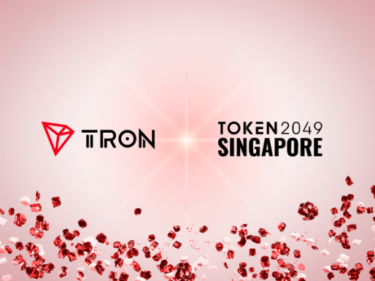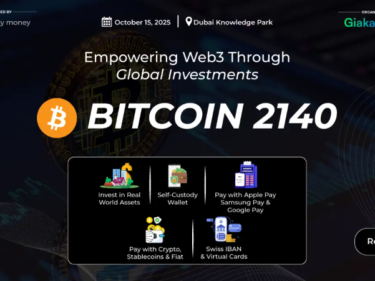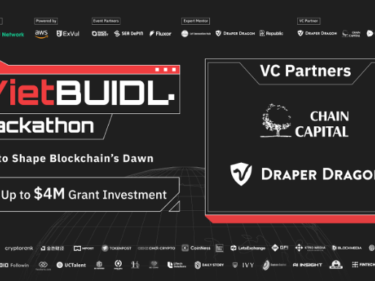NuNet AMA Recap
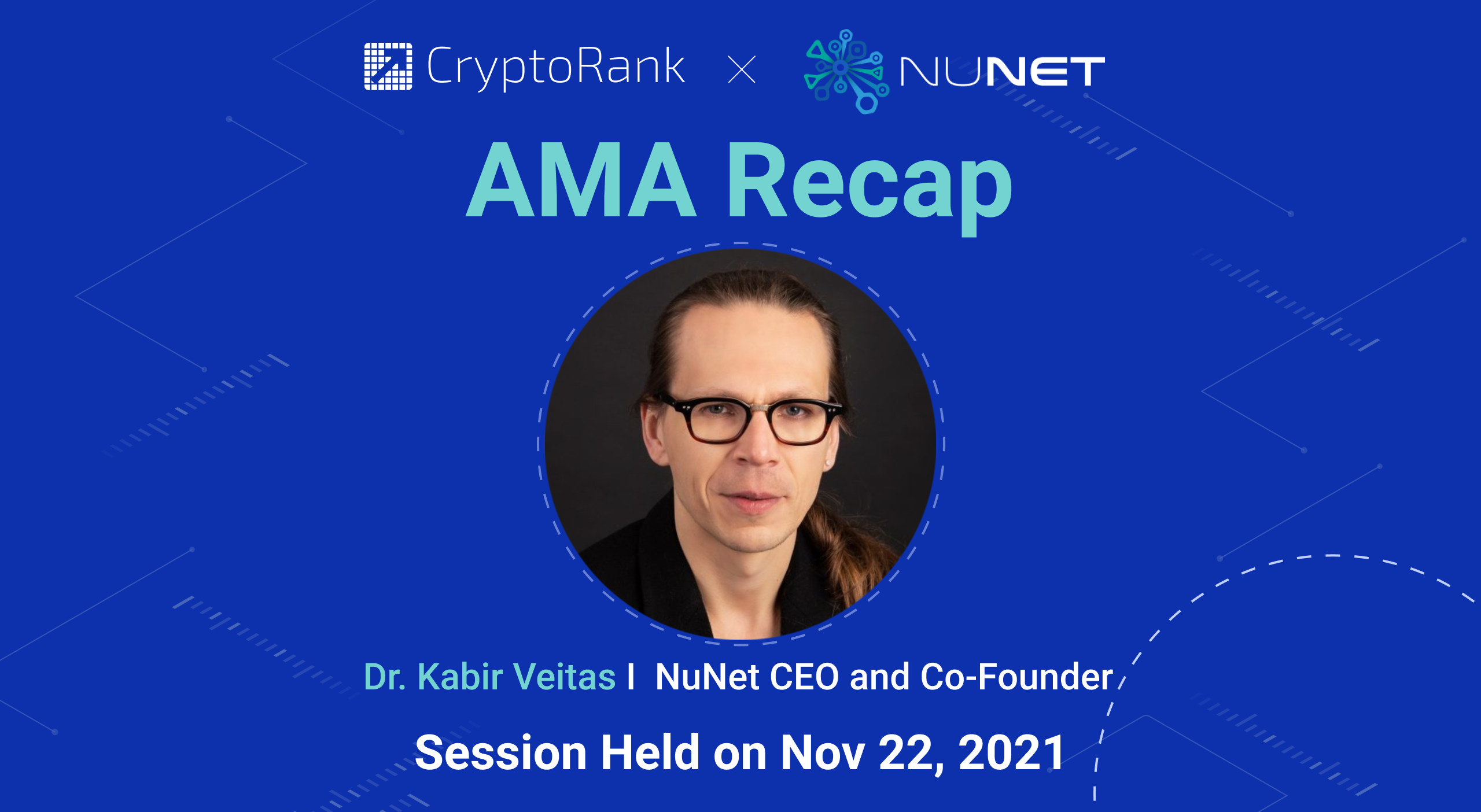
NuNet lets anyone share and monetize their computing resources at scale and provides globally-distributed, optimized computing power for decentralized networks.
On November 22, Dr. Kabir Veitas, CEO and Co-Founder of NuNet joined us to answer our questions.
 Dr. Kabir Veitas, CEO and Co-Founder of NuNet
Dr. Kabir Veitas, CEO and Co-Founder of NuNet
I was AI Researcher at SingularityNET, formerly a strategic business consultant, executive, and manager. I am a Master of International Management, Master of AI, interdisciplinary PhD AGI/Distributed computing, main NuNet architecture designer.
Questions from the CryptoRank team
#1. Can you tell us about NuNet? What problems do you solve, both in the space and for the community?
Kabir V.: – NuNet is a global economy of decentralized computing. So we, first of all, allow a wealth of latent computing resources distributed across edge devices, that lies dormant and underused currently, to be connected into one network, do useful work, and be contributed to it. Then, cutting-edge AI and ML are not affordable for most except largest corporations. NuNet will potentially enable to run of this workflow for individuals, researchers, and SMEs, which cannot afford that otherwise. In the end, NuNet targets the fragmented market, controlled by a few big corporations, and makes it open to everybody.
#2. Could you briefly describe the milestonesNuNet has achieved, and about your upcoming plans?
Kabir V.: – Here is a small slide of our origin, incubation, and launch. As you see, we had started in 2018 with academic research, then we did a demo in 2020 and we have released a testnet version just a couple of months ago.
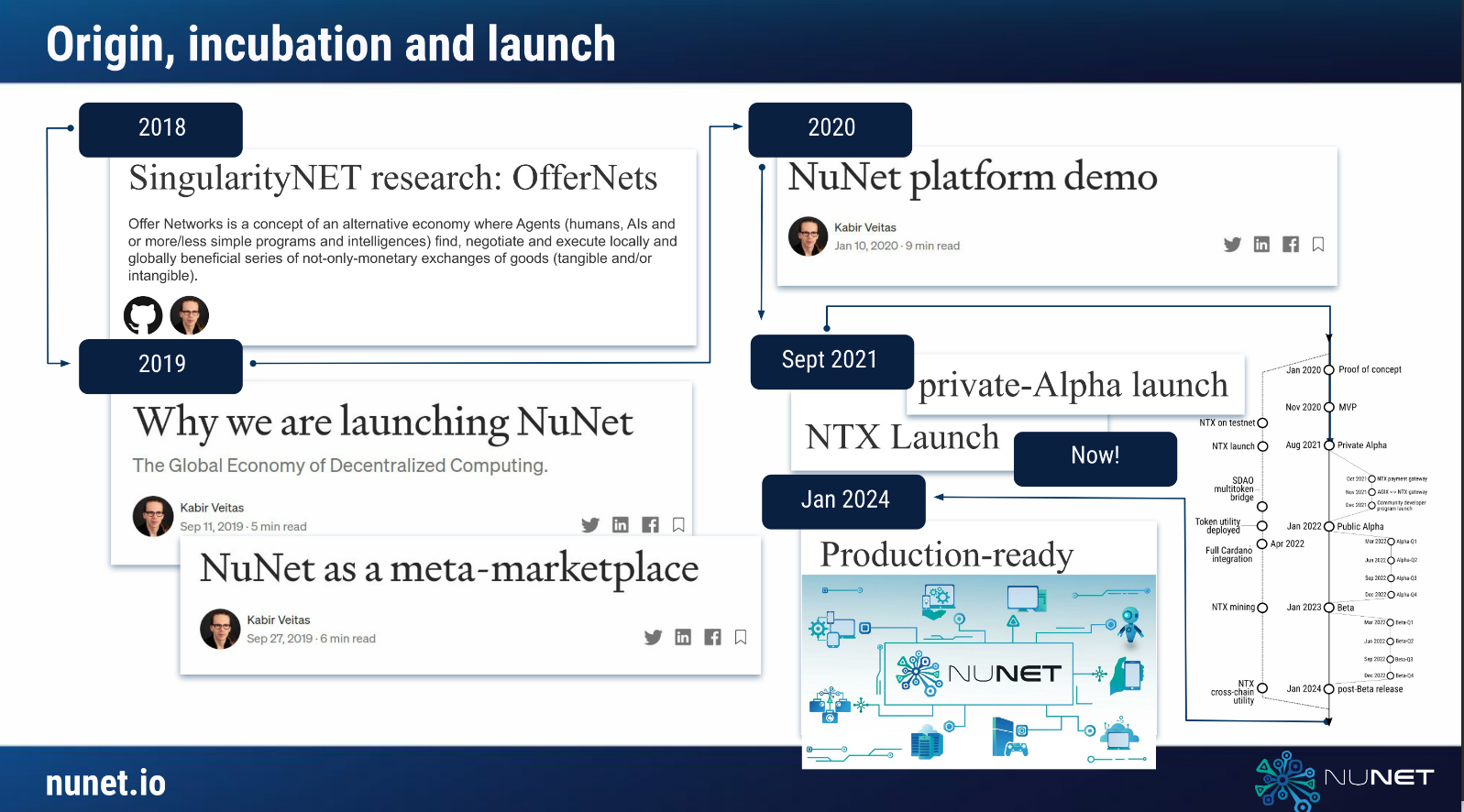
And here is our roadmap:
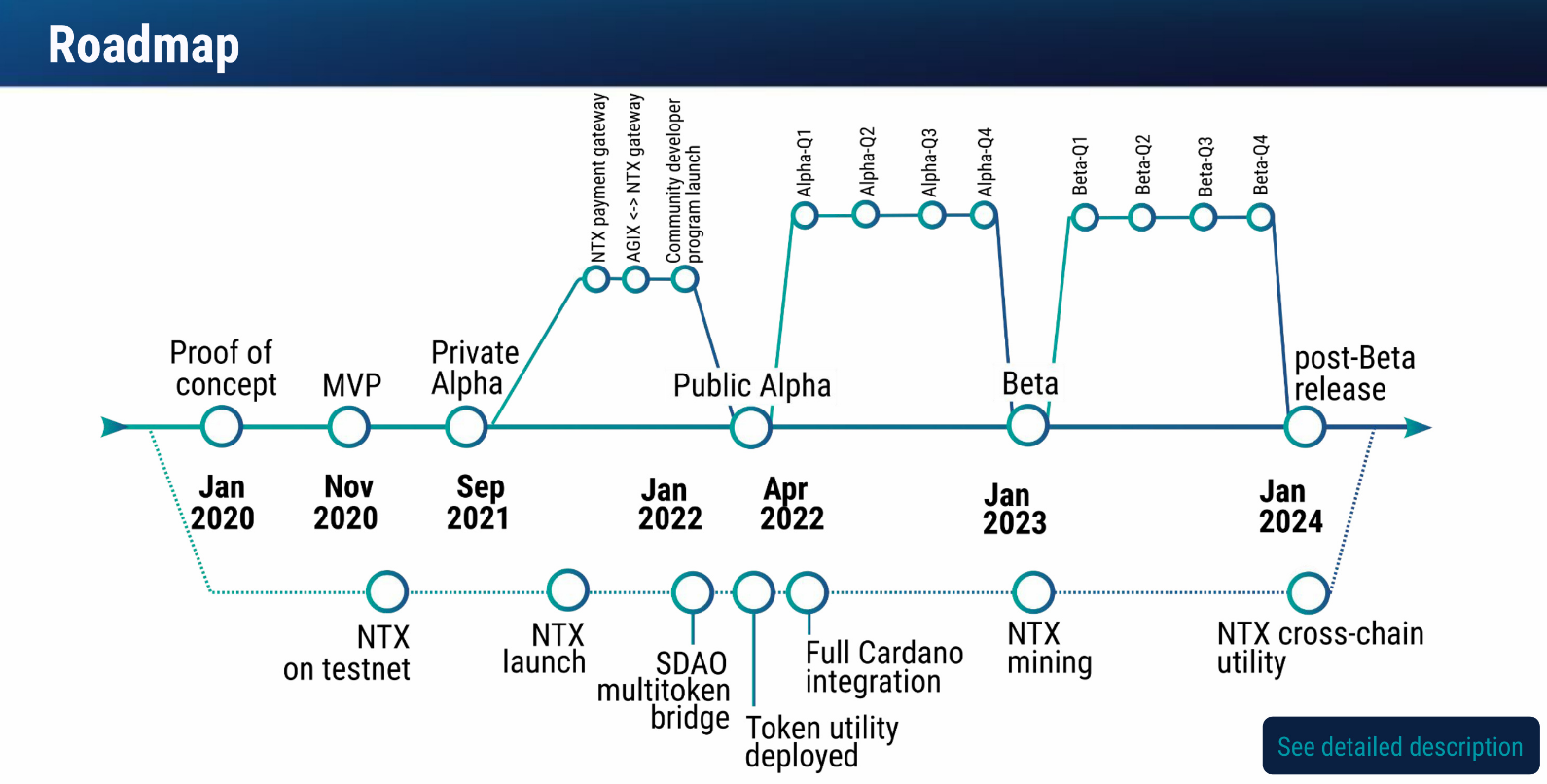
Questions from Twitter
#1. Can individuals and organizations make redundant computing capacities available to other users? Can resource providers set terms of use?
Kabir V.: – Sure — allowing individuals and organizations to share their latent computing power (the one that is not used by the production processes of an owner) is the gist of NuNet. So we can share the global computing power available in the world with each other. And yes, resource providers can set terms of use and this is what differentiates us from usual ‘clouds’; compute providers will be able to declare exactly how they want their resources to be used:
- Declare types of usages (blockchain, research, other);
- Declare prices;
- Other soft/hard preferences.
#2. Who is your project’s biggest rival? In the future, does your project have a plan to beat your rival or cooperate with them? I think that will be a huge step forward for your project.
Kabir V.: – I would not want to single out one; further, we do not think of Web3 space as competitive — rather it provides a lot of opportunities to collaborate. See our “competitive analysis” that we have prepared and constantly updating;
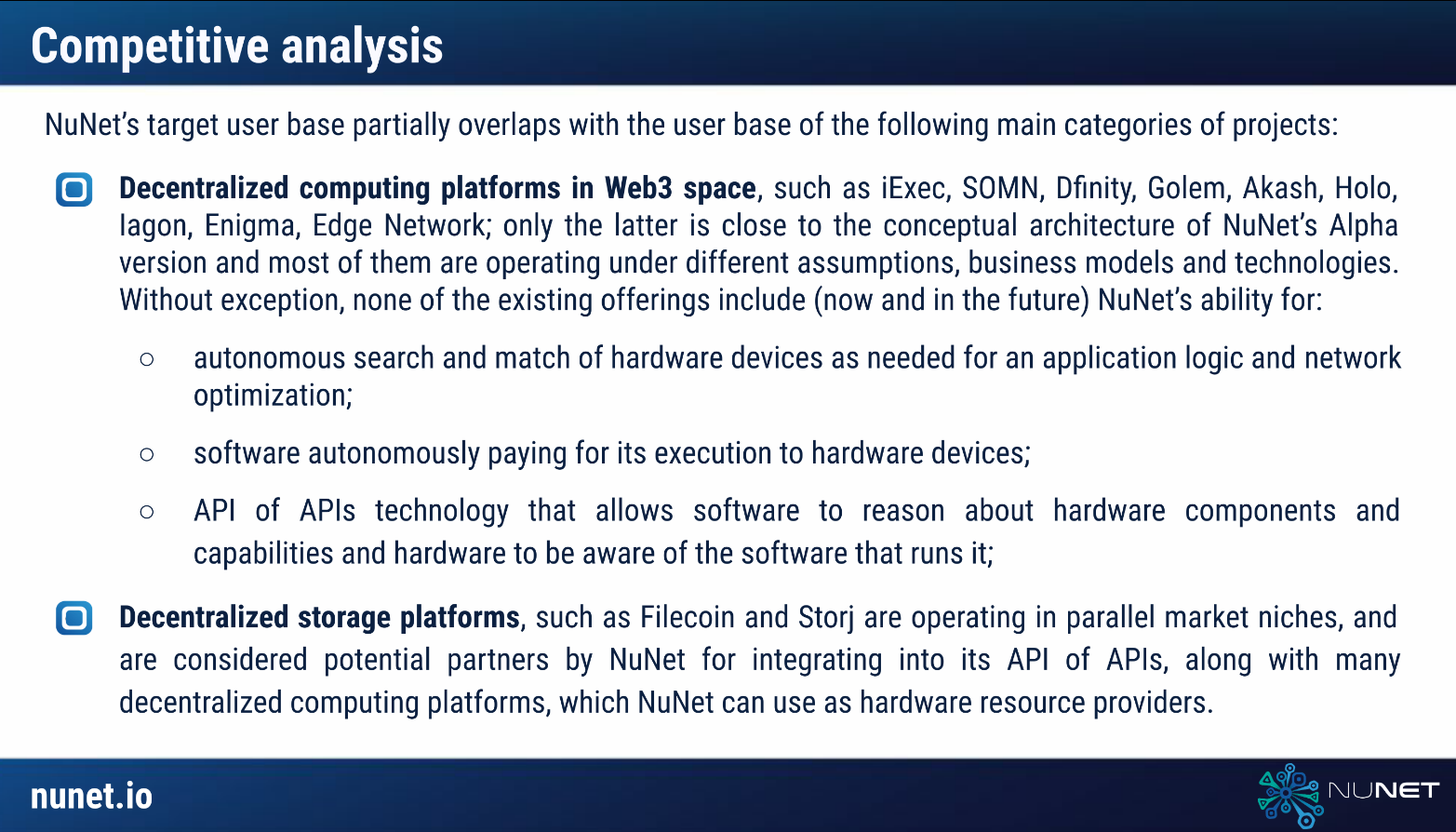
In short, we position ourselves as a meta-marketplace that connects different providers rather than competes with them. Technologically, there are closer and further platforms, but none of them offer tokenomic layers between algorithms and hardware or, in computer science terms, computational reflection.
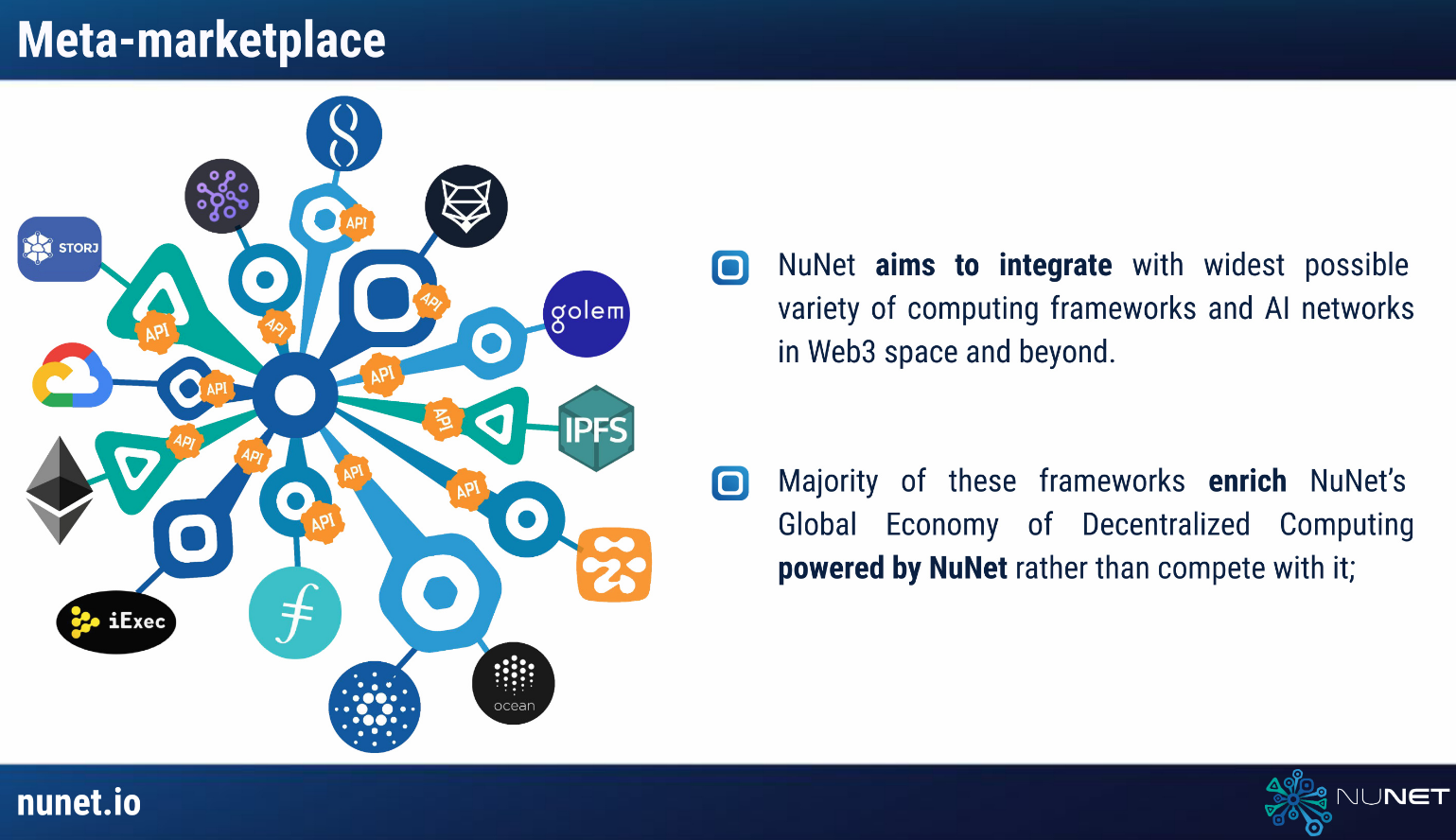
#3. Can NTX owners influence the future of your platform by participating in governance at NuNet? What are our governance rights?
Kabir V.: – First of all, people will be able to have a say of how the platform develops — which devices are enabled first, what features are enabled, etc. We will do polls on important decisions of which devices we will allow on the network first (GPU clusters, mobile phones, or other decentralized frameworks). Further, we prioritize our roadmap (ie features) based on the use-cases needed for the community.
The important way for the community to participate will be providing computing resources, getting reimbursed, and also receiving a larger portion in the say how the platform is to be developed further. This way we are going to enable organic evolution of the platform, based on the needs of the community, compute providers, and other stakeholders.
Questions from Telegram
#1. What is your advantage over other projects? Is it from a security point of view or the technology you are using? Or are there other advantages? What makes you believe that your project is worth choosing?
Kabir V.: – NuNet aims to:
- Connect all types of computing devices into a global decentralized network to execute any containerized program or AI algorithm
- Monetize computing resources via NTX token rewards for computing power contribution to the ecosystem
- The platform will allow separate components of an application to anonymously run on different computing devices, ensuring seamless, secure, and borderless communication across devices
- Algorithms and AI Services (SingularityNET’s or others) can autonomously find the optimal computing resources to execute themselves and directly compensate for their usage to individual computing devices.
Most importantly, we are not competing with any specific platform — we are connecting all of them into one system and making them winners themselves.
#2. The staking program is very important for any project, Can I stake your token? Do you have any plan of starting a staking program?
Kabir V.: – Yes, you will be able to stake NTX token immediately after it is unlocked on Nov 26; we are partners with SingularityDAO, which is a member of our SingularityNET ecosystem and they provide us with DeFi solutions (as for all the ecosystem and beyond).
#3. Can you give an overview of your Tokenomics and the utility of Token?
Kabir V.: – The Utility token will be employed for:
- Governance and polling for the decisions related to development directions of the platform (devices to onboard depending on users / token holders preferences)
- Settling transactions and calculating costs of workflows using different AI algorithms and running on different machines
- Connecting all multi-stakeholder platform’s stakeholders into a global ecosystem.
Regarding auditing of the contract: sure it is audited — here is the audit report: https://nunet-io.github.io/public/Nunet_Token_Contract_Audit.pdf

